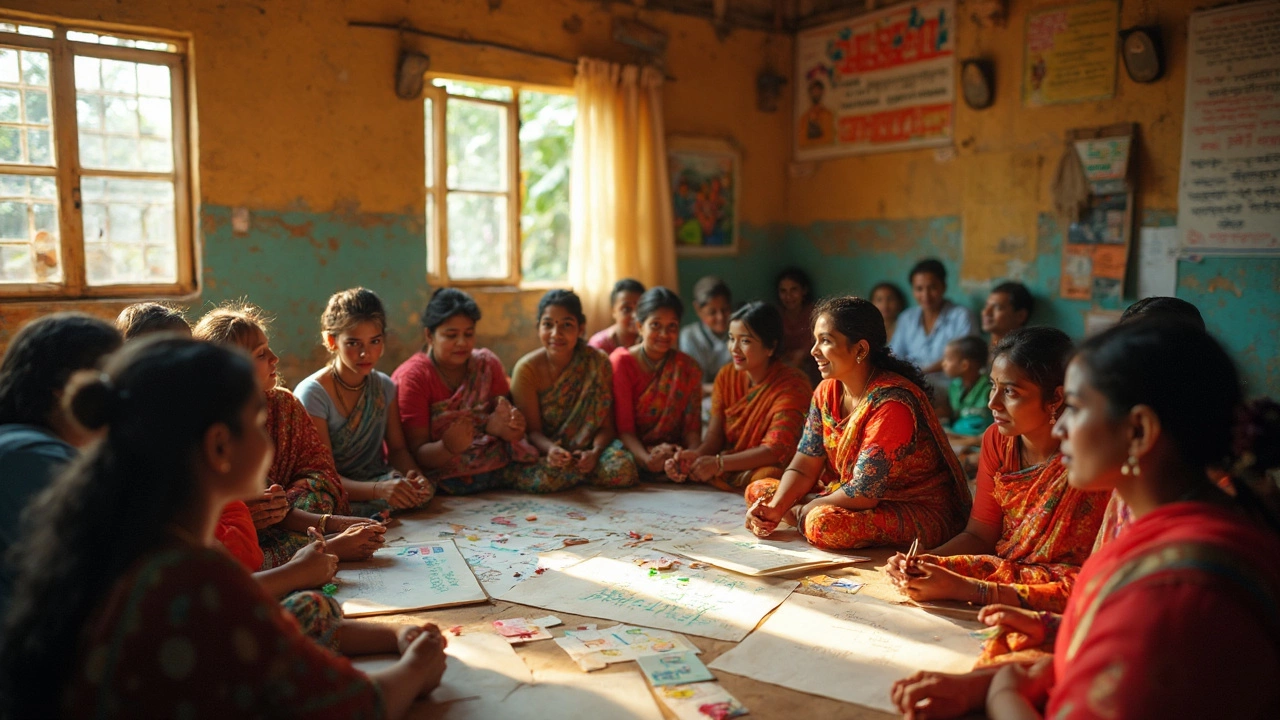Planning Guides for Charities: Actionable Steps and Templates
Ever felt stuck when your nonprofit needs a solid plan? You’re not alone. Most groups start with good ideas but lose steam without a roadmap. This page gives you the exact steps, simple templates and quick checklists you can use right now to keep projects moving.
How to Build a Community Outreach Plan
First, ask yourself what problem you really want to solve. Write one sentence that captures the goal – for example, "Connect 200 low‑income families with free health screenings in three months." That sentence becomes the anchor for everything else.
Next, map the people you need to reach. List their age, location and the channels they trust – maybe WhatsApp groups, local temples or community centers. Knowing where they hang out saves you from blind flyers that never get read.
Then, outline the activities that will get you there. Break each activity into tiny tasks: "Call clinic for partnership," "Create flyer template," "Schedule 2‑hour info booth." Assign a clear owner and a realistic deadline. When you see the work chunked into bite‑size pieces, it stops feeling overwhelming.
Finally, decide how you’ll measure success. Pick two numbers – like the number of people who sign up and the percentage who actually attend the screening. Track them in a simple spreadsheet and review weekly. If the numbers dip, you can tweak the channel or the message fast.
Event and Fundraising Planning Basics
Planning a charity event follows the same formula: goal, audience, tasks and metrics. Start with a budget. Write down every cost – venue, food, marketing – and then list ways to cover each line, whether it’s ticket sales, sponsorship or a small online fundraiser.
Pick a date that doesn’t clash with local festivals or school exams. Use a free calendar tool to set reminders for each milestone, like "confirm speakers two weeks before" or "send reminder emails three days prior." The more you automate, the less you’ll forget.
When it comes to promotion, keep the message short and focused on the benefit: "Join us to provide 100 meals for the homeless." Post that on the platforms your audience uses, and ask volunteers to share it with their networks. A personal ask works better than a generic broadcast.
On the day of the event, have a one‑page checklist with roles, timings and contact numbers. Stick it on the wall, hand copies to volunteers, and run a quick 5‑minute walk‑through before guests arrive. Small rehearsals catch missing equipment or mis‑assigned duties before they become crises.
After the event, send a thank‑you note to every donor and volunteer within 48 hours. Include a quick impact snapshot – "Your $20 helped feed 50 people." People love to see the result of their support, and it sets the stage for future giving.
Whether you’re mapping a neighborhood outreach program or a fundraising gala, the core steps stay the same. Define a clear goal, know who you’re talking to, break work into tiny tasks, assign owners, set deadlines and track two key numbers. Follow this loop for every project and you’ll see ideas turn into real results faster than before.
Need a ready‑made template? Scroll down to download a free community outreach planner and a simple event budget sheet. Grab them, fill them out, and watch your planning headaches disappear.
Outreach Plan Basics: What Does an Outreach Plan Include?
Not sure what goes into a solid outreach plan? This article lays out the key parts you need to consider, from figuring out who you're trying to reach, to tracking how well your plan is working. It breaks down each step so you don’t get lost in the weeds. Expect practical advice, real-life pointers, and a few details you probably haven’t thought about yet. Whether you’re new to outreach or just want a refresher, you’ll find clear, usable tips here.
Read MoreHow to Organize a Community Outreach Program: Straightforward Steps for Results
Looking to start a community outreach program but not sure where to begin? This guide breaks down the process into clear, doable steps that work in real life. You'll find practical advice, honest tips, and even a few tricks that experienced organizers swear by. Whether you're part of a local group or acting solo, you'll figure out how to gather the right people, set smart goals, and actually make a difference. Start your program strong and avoid rookie mistakes right out of the gate.
Read More
